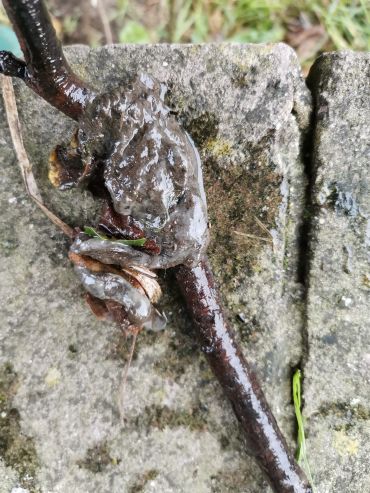A new study by Somerville College Fulford Junior Research Fellow Dr Dania Albini has proven that pollution from treated and untreated sewage is the greatest threat to river biodiversity, causing more damage than runoff from farms.
The new study was released on World Rivers Day by Dr Albini as lead author, alongside other members of the freshwater ecology laboratory run by our Tutorial Fellow in Ecology, Professor Michelle Jackson.

One of the English rivers sampled for the study. Image credit: Dania Albini.
The study, which gained extensive coverage in The Guardian, confirmed that no river in England passes tests for chemical or biological pollution, and government targets to improve the water quality in rivers will not be met. In response, the authors of the study say there is clear need for more regulation of water companies and improvements at their treatment plans to protect rivers.
Dr Albini said: ‘Our study highlights the disproportionate impact that sewage discharge has on river quality, presenting an urgent need for a comprehensive action plan targeting the sewage discharge problem.’
Treated sewage released by water companies into rivers and raw effluent that is dumped in rivers via storm overflows is the primary driver of increased nutrients, algae and sewage fungus in rivers, according to the study. It radically alters plant, animal and microbe communities and increases the abundance of harmful species.
‘Improvements to wastewater plants should be implemented along with more regulations,’ said Dr Albini. ‘These efforts are crucial in safeguarding the integrity and safety of our rivers – fundamental elements of both ecosystems and human wellbeing.’

Sewage fungus on a wood stick collected in the area of a river characterised by sewage discharge. Image credit: Dania Albini.
Professor Jackson, who is senior author of the study, said: ‘There is ongoing debate about the cause of the poor ecological state of many rivers in the UK because it is difficult to disentangle different pollution sources. Here, we show that even treated sewage appears to have a stronger influence on river communities than pollution from the surrounding land. This important information should be used to prioritise the management and conservation of our rivers moving forward.’
This article is derived with thanks from articles in The Guardian and Oxford University Website.
The full version of Dr Albini’s study is available in both Global Change Biology and Ecological Solutions and Evidence.